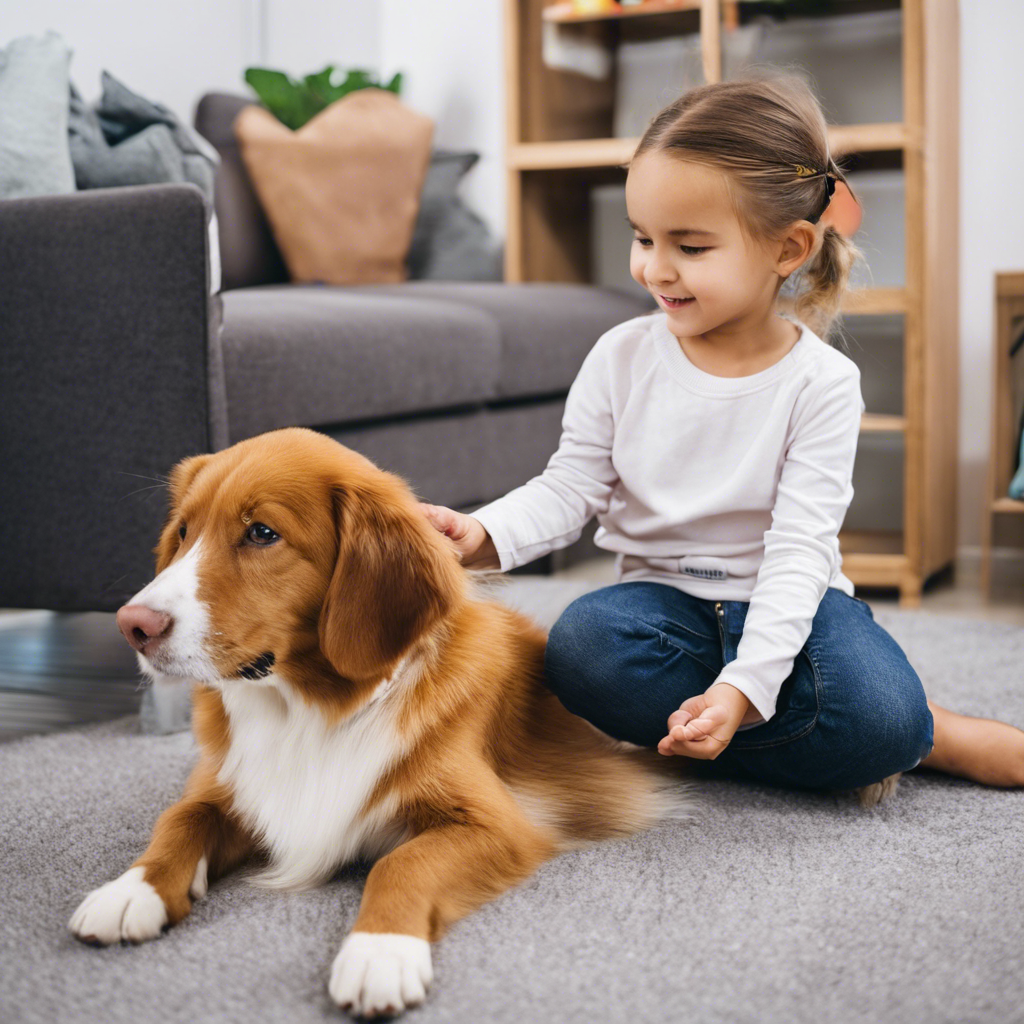Children can learn empathy and responsibility through caring for pets. This article explores the benefits of pet ownership for children.
As children grow and develop, they need to acquire many essential life skills, such as empathy, compassion, and a sense of responsibility. One often overlooked source of these valuable lessons is the presence of pets in a child’s life. Pets, whether they are cats, dogs, or even smaller animals like hamsters, can significantly impact a child’s emotional and social development. This article delves into the fascinating ways in which pets foster empathy in children and how these lessons can benefit them throughout their lives.
Having a pet is a joyous experience for children, offering them a playful companion and a source of unconditional love. However, the benefits of pet ownership extend far beyond companionship. Research suggests that children who grow up with pets develop a heightened sense of empathy and compassion, which are crucial skills for navigating social relationships and fostering emotional intelligence.
The Bond Between Children and Pets
The unique bond between children and their pets is an essential component of their development, teaching them about love, empathy, and responsibility. According to a study by the American Humane Association, children who grow up with pets are more likely to become empathetic adults. This bond is strengthened through daily interactions like feeding, grooming, and playing, which foster a sense of responsibility and care in children.
Pet Ownership as a Learning Opportunity
Pet ownership provides a wealth of opportunities for children to learn and grow. Here’s how pets can positively impact a child’s development:
Learning Responsibility
Caring for a pet teaches children about the daily commitment and dedication required to nurture another living being. Feeding, grooming, and exercising a pet instills a sense of discipline and routine, helping children understand the importance of responsibility. For instance, children who walk their dogs learn to be punctual, reliable, and consistent, which are valuable traits that can carry over into other areas of their lives.
Developing Empathy and Emotional Intelligence
Pets offer a unique window into the emotional world for children. By observing and interacting with their pets, children can learn to recognize and understand a range of emotions. For example, they might see their cat purr contentedly when being petted, or their dog wag its tail excitedly when they come home from school. These experiences help children develop emotional intelligence, allowing them to better navigate their own emotions and those of others.
The Impact on Family Dynamics
Having a pet can bring families closer together and enhance the overall family dynamic. Pets often serve as a focal point for family activities, such as going for walks, playing in the backyard, or even just cuddling on the couch. These shared experiences create a stronger bond among family members and provide opportunities for quality time and meaningful conversations.
Unconditional Love and Support
Pets offer a level of unconditional love and support that is unparalleled. They provide a non-judgmental presence, offering comfort and companionship without expecting anything in return. This can be particularly beneficial for children who may struggle with self-esteem, anxiety, or social challenges, as pets provide a safe and constant source of affection.
Practical Tips for Parents
Here are some tips for parents to help their children develop empathy and responsibility through pet ownership:
Involve Children in Pet Care
Encourage your children to take an active role in pet care. Let them feed the pet, take it for walks, or even assist in training. This not only teaches responsibility but also helps establish a close bond between the child and the pet.
Choose Age-Appropriate Tasks
Assign tasks that are suitable for your child’s age and abilities. Younger children can help with simple tasks like filling food bowls, while older children can take on more significant responsibilities like walking the dog.
Teach Respect and Compassion
Educate your children about the importance of treating pets with respect and compassion. This includes teaching them to recognize and respond to their pet’s needs, such as providing comfort when the pet is scared or playing gently when the pet is tired.
Frequently Asked Questions
How can I teach my child to be gentle with our pet?
Model gentle behavior yourself and explain to your child the importance of being kind to animals. Reward gentle interactions and redirect rough play.
What if my child is afraid of animals? How can I help them overcome this fear?
Start by exposing your child to small, friendly pets in a controlled environment. Gradually increase their exposure and teach them about animal behavior. Patience and positive experiences are key to helping them overcome their fear.
Are certain types of pets better for fostering empathy in children than others?
All pets can teach valuable lessons about empathy and responsibility, but dogs and cats, with their high level of social interaction, often provide the most immediate feedback to children’s actions, making it easier for them to understand the impact of their behavior.
Conclusion
Pets play a vital role in a child’s development, offering a unique opportunity to learn empathy, responsibility, and emotional intelligence. From the loving bond they form with their pets to the daily routines of care and maintenance, children acquire essential life skills that can positively impact their social interactions and overall well-being. By recognizing the value of pet ownership and encouraging responsible pet care, parents can help their children become more empathetic, compassionate, and responsible individuals.
External Resources:
1. The Humane Society: The Role of Pets in Children’s Lives
2. ASPCA: Pets and Kids: Teaching Children Respect and Responsibility
3. Psychology Today: Why Dogs Are Good for Children
